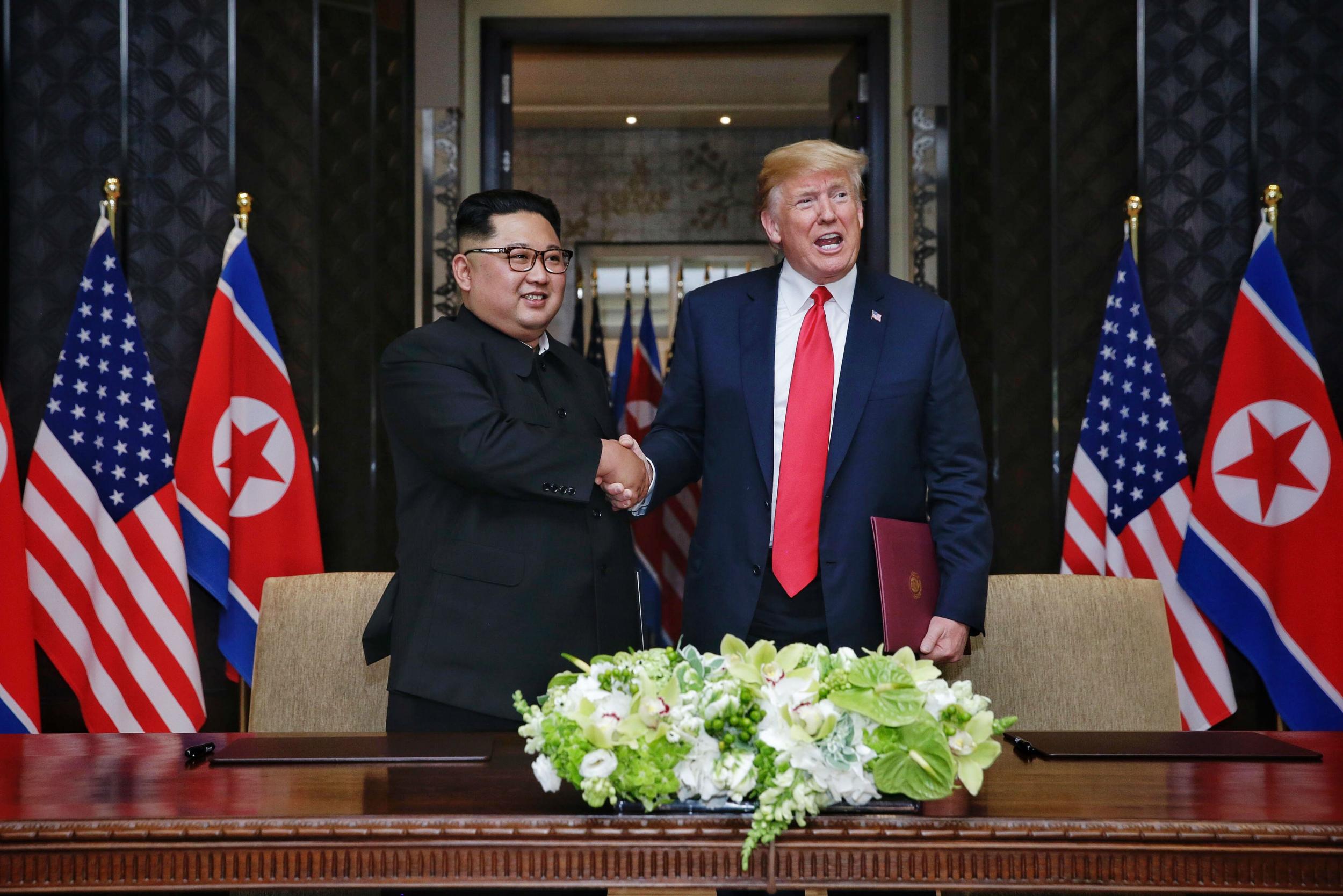Critics are dismissing the Trump-Kim summit as fake diplomacy – but this is why they're wrong
Trump has talked too long about being the greatest dealmaker in the world to not make a proper deal now. And Kim has had a taste of being taken seriously: this will have lasting effects

Your support helps us to tell the story
From reproductive rights to climate change to Big Tech, The Independent is on the ground when the story is developing. Whether it's investigating the financials of Elon Musk's pro-Trump PAC or producing our latest documentary, 'The A Word', which shines a light on the American women fighting for reproductive rights, we know how important it is to parse out the facts from the messaging.
At such a critical moment in US history, we need reporters on the ground. Your donation allows us to keep sending journalists to speak to both sides of the story.
The Independent is trusted by Americans across the entire political spectrum. And unlike many other quality news outlets, we choose not to lock Americans out of our reporting and analysis with paywalls. We believe quality journalism should be available to everyone, paid for by those who can afford it.
Your support makes all the difference.Twenty-four hours on from the conclusion of the Singapore summit, much of the commentary on the meeting and the agreement signed between Donald Trump and Kim Jong-un has had a decidedly dismissive tone. Robert Kelly, an expert on inter-Korean relations at Pusan National University, described it as “even thinner than most sceptics anticipated”.
The critics undoubtedly have a point, as the bilateral agreement contains little but vague promises and aspirations. Most importantly, we are no further forward in terms of the key issue of denuclearisation. Kim’s commitment to that goal as set out in the document is just as nebulous as it was before the summit, with no movement having been made towards tying him down to specifics.
Nevertheless, before dismissing the summit entirely, we ought to reflect on where we are now in comparison to where we were a year ago, when Trump was calling Kim Jong-un “little rocket man” and threatening to rain “fire and fury” down on him. Today the fear of nuclear war that existed at that point has largely dissipated and for that we ought to be thankful (though President Moon Jae-in of South Korea deserves as much or more credit for that development than either of the two leaders who met in Singapore).
Moreover, despite the lack of concrete progress at the Trump-Kim meeting, there remain reasons to be optimistic about the future of the negotiations, the most important being that both leaders appear to want to reach an agreement, albeit for rather different reasons.
For his part, Kim Jong-un appears to have decided that now is the moment to attempt to normalise North Korea’s relations with the rest of the world. Having achieved the objective of making North Korea a nuclear weapons state, he is seeking to parlay that into a series of concessions from the international community – diplomatic recognition, security guarantees, the lifting of sanctions – that will both stabilise his regime and allow it to enter into international relations as a “normal” state.
For his part, Trump seems to be fixated on getting a deal primarily for the sake of getting a deal. Having told the American people repeatedly that he is the greatest dealmaker who ever lived he is desperate to prove it to them and to the rest of the world. His desire to conclude a deal is evident in the way that he has made all the running since Kim made the original opening move. From that point onwards Trump has been the one offering up concessions, from agreeing to talk to the North Koreans in the first place – thus conferring legitimacy on a regime Washington has shunned for more than 60 years – to pledging to end joint US-South Korean military exercises yesterday. Meanwhile, Kim has made only vague promises of denuclearisation in return.
A further reason to believe that an agreement is possible is that Trump might just be able to sell a deal with North Korea to the American people. If Barack Obama had made the concessions Trump has so far offered, the Republican right would have been calling for his impeachment, but as yet Trump’s actions have produced barely a peep of protest. As with Richard Nixon and the normalisation of diplomatic relations with China, Trump’s position as a perceived hardliner and his influence over the Republican voting base may make it possible for him to cut a deal with North Korea that would not otherwise be possible.
Clearly, there is much that can still go wrong, and only a fool would feel confident that we are now on the run-in to a historic breakthrough in US-North Korean relations, especially given the capriciousness of the two leaders involved.
Nevertheless, those making generally downbeat assessments of yesterday’s meeting may yet prove to be overly pessimistic.
Steven Hurst is a reader in politics at Manchester Metropolitan University
Join our commenting forum
Join thought-provoking conversations, follow other Independent readers and see their replies
Comments